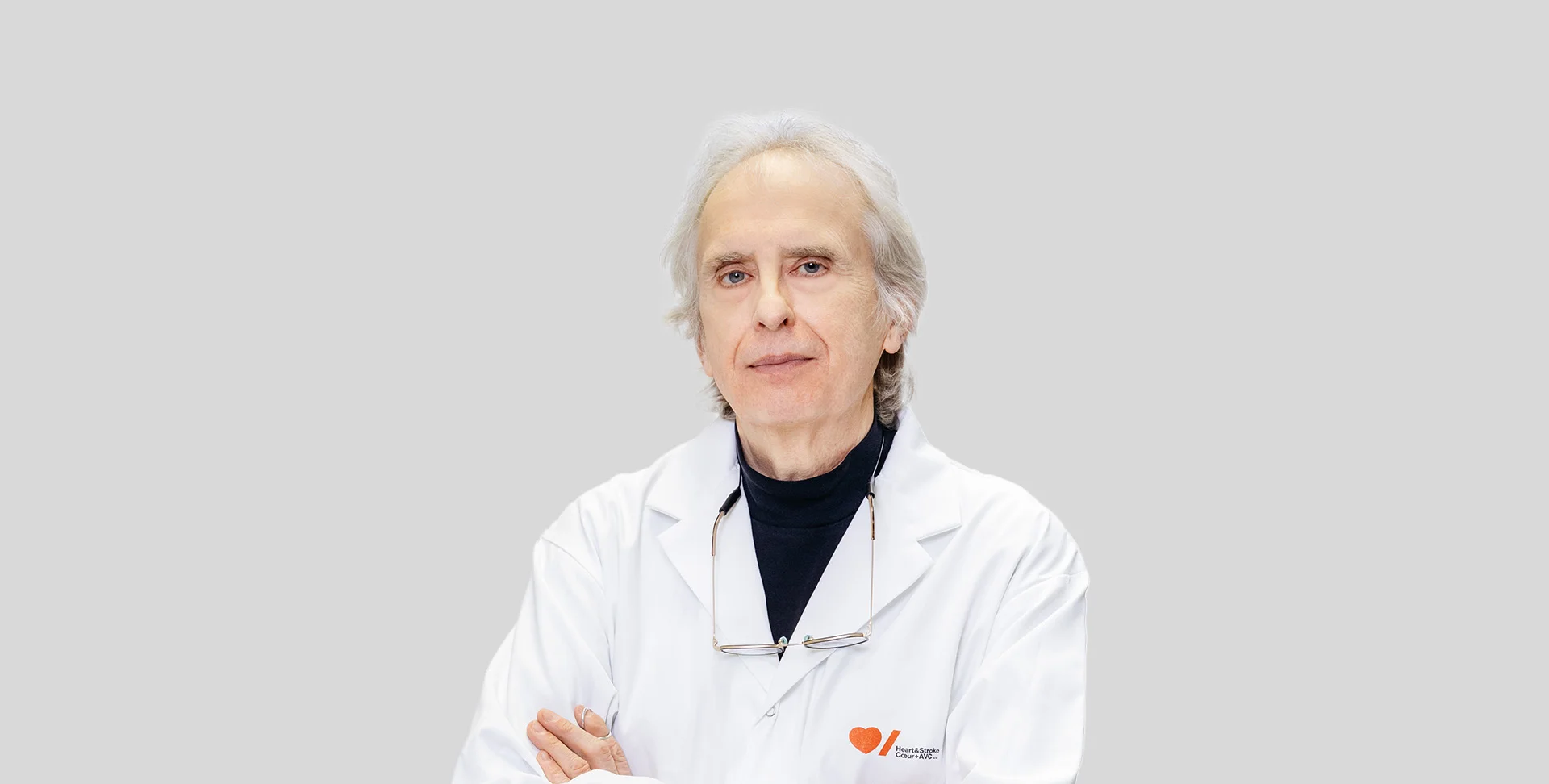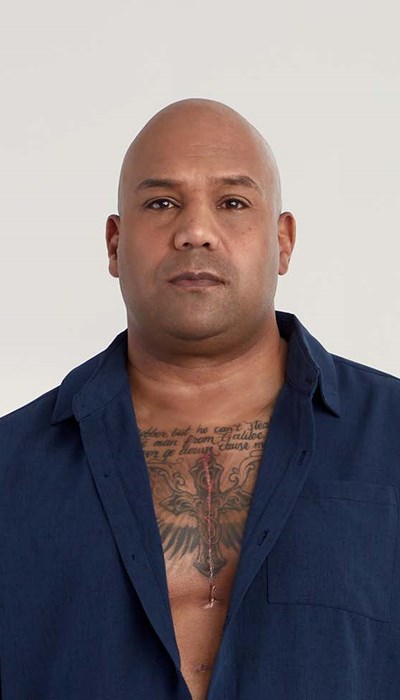
Facing a future with heart failure
The diagnosis knocked Kevin down. But after open-heart surgery, he’s back on his feet
Chapter 1 Invincible no more
For most of his life, Kevin Lobo felt invincible.
As a hardcore cyclist, he’s had close calls with cars. He survived a near drowning in his teens. While skiing at Whistler, he narrowly escaped an avalanche.
But heart failure is the toughest test he’s ever faced.
Kevin was walking his dog, Cassius, in a Toronto park when he started sweating profusely and feeling chest pains. Looking down at his flipflops, he saw that one foot had suddenly swelled up as big as a softball.
A friend drove him to emergency. Kevin thought he would be home in a few hours. But doctors admitted him to hospital and implanted a stent to open a blocked artery to his heart. He was released a few days later, with a referral to the hospital’s heart failure clinic.
“I was terrified,” admits Kevin, then 38 and living on his own.
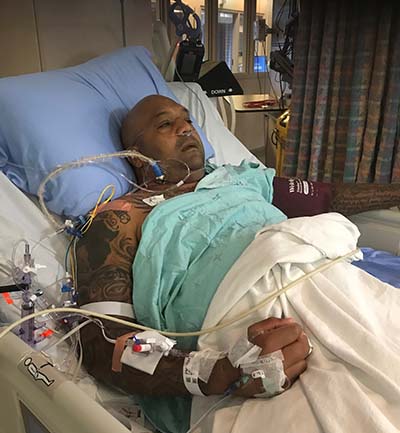
Open-heart surgery was painful, but Kevin started feeling better soon after.
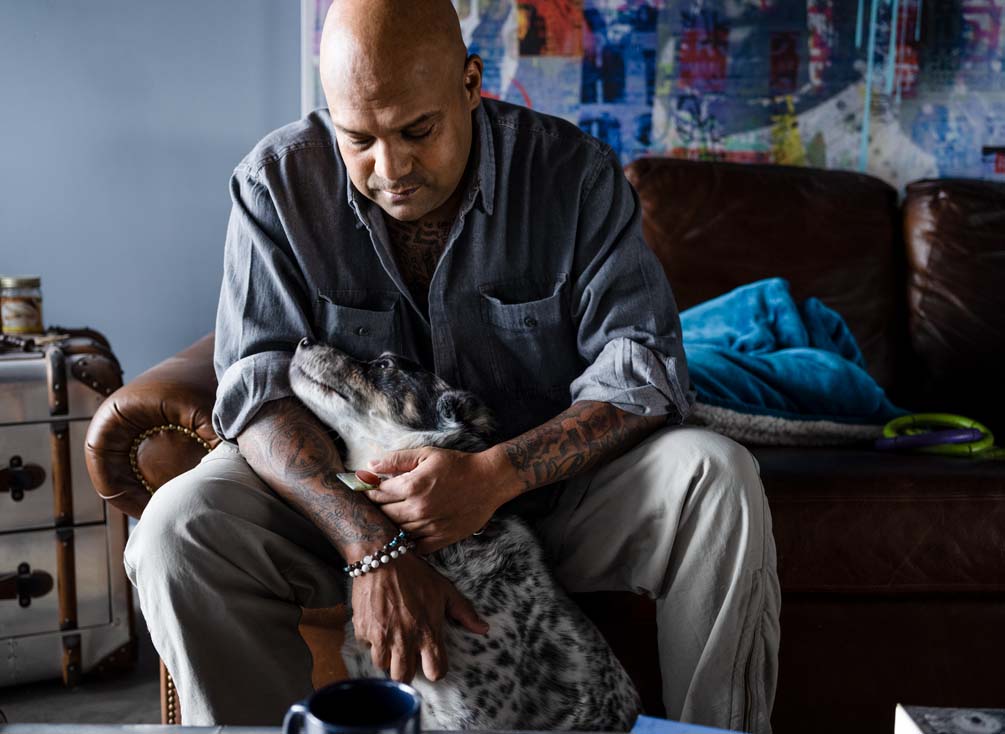
Kevin feels blessed to have received the care he did, potentially saving him from a heart attack.
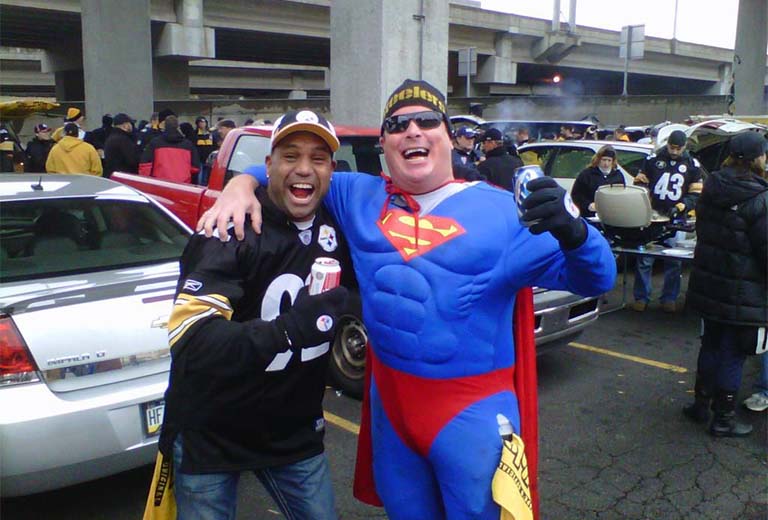
For years, medications helped Kevin manage his heart failure and keep up a busy social life.
Chapter 2 Heart failure? What’s that?
As Kevin started going to regular appointments at the heart failure clinic, he learned that his heart was functioning at less than 40% of its full capacity.
Heart failure is a chronic condition caused by the heart not functioning as it should. Often it is the result of damage from a heart attack.
But Kevin had never had a heart attack. He was fit and active, making time for walks with Cassius and daily gym workouts around his job as a sales executive in communications software. He cycled and played golf regularly. Outgoing and upbeat, he had a busy social life, which he admits included occasional beer and wings with friends who share his love of NFL football.
So why heart failure? Why him?
Born in Kenya, Kevin has South Asian heritage, which brings an increased risk for heart disease and stroke. Plus there is family history: his mother died of a heart attack in her 40s. “On her side, everybody has heart issues or diabetes. A lot of them never made it past the age of 60.”
Fortunately, many people with heart failure can manage their condition well with medication and lifestyle changes.
Working with his cardiologist, it took six or seven months to find a combination of medications that helped Kevin feel good and avoid most heart failure symptoms such as fluid retention and breathlessness. “There were good days and bad days,” he says. “But once we got it, everything was good.”
For the next several years, even with his reduced heart function, Kevin continued his routine of work, gym, golf, cycling and travel. And he cut back on beer and wings.
But by early 2021, his heart function had declined and he experienced wheezing when he breathed. An angiogram showed that three of his coronary arteries were 70-90% blocked.
At 54, Kevin needed open heart surgery.
Chapter 3 Surgery and beyond
“You look like you’ve been hit by a bus!” Kevin’s brother told him as he woke up in intensive care after the seven-hour operation in August 2021. Surgeons had done three bypass grafts and replaced the aortic valve in Kevin’s heart.
This latest challenge brought out the fighter in Kevin. The day after surgery, he stood up to walk. “But the pain was so intense, I literally lay down again and passed out.”
Within weeks, Kevin was doing two 30-minute walks a day — with no more wheezing. He resumed working from his downtown condo. A nurse visited every other day to change the bandages on his chest and his leg, where blood vessels were taken for the bypass grafts.
“I feel like a 25-year-old soccer player!” Kevin said two months after the operation. He feels blessed to have received great care based on the latest research — treatment that probably saved him from a heart attack.
Nevertheless, he admits to some dark moments during his recovery. “One day I was watching TV and I just broke down. You're living this emotional rollercoaster.”
Kevin knows that his future will always include heart failure. His doctors want to see his heart function increase to 35-40%. “That's their goal for this year, get the heart muscle strong again.”
Today, he sees his cardiologist for a checkup every four months. Those checkups prove invaluable. In 2022, "I had a pacemaker put in... for insurance,” he chuckles.
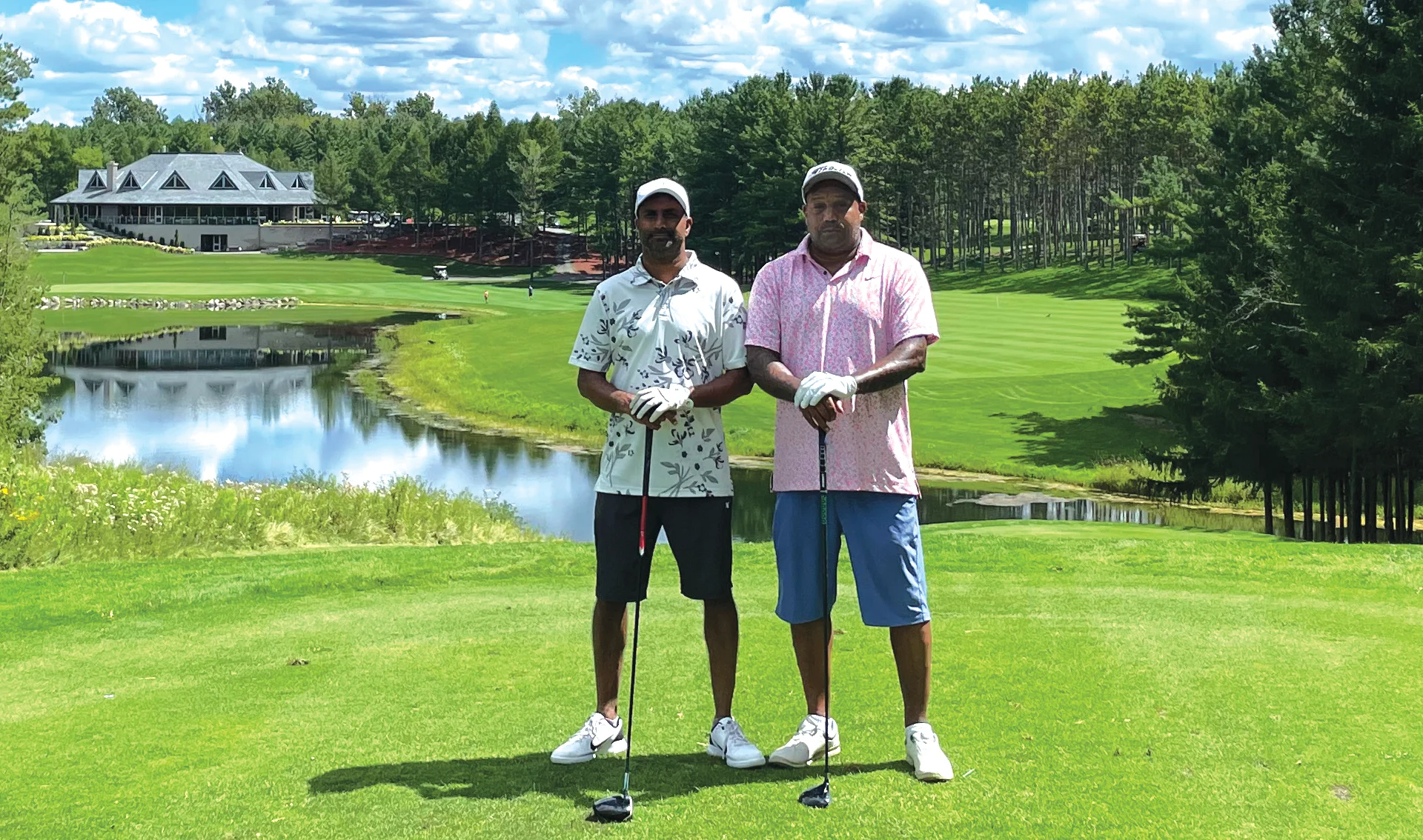
Kevin and his brother play golf together more these days. “I still got a lot of life left in me.”
His athleticism has taken a hit - only low-impact, no-contact sports now – but he’s happy to be active. He especially loves to play golf with his dad and his brother. “Healthy mind, healthy body,” he says.
“Your mental health affects everything, even your body,” he says. “My dad, from Goa, didn’t always understand this. He does now. And even though I’m in my 50’s now, he still looks out for me.”
Kevin’s fight with failure has changed his perspective to appreciate the simple things. “When I meditate, I think beautiful, peaceful thoughts: me and my mom together; me and Lincoln at the beach; a world where there is no war, no poverty,”
Whatever happens, Kevin will do everything he can to beat heart failure. What keeps me going is the advice from Grandpa, "You have a roof over your head, you have one person who loves you? You have 97% of what the rest of the world doesn't have."
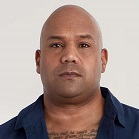
Join the fight to end heart disease and stroke.
Real stories
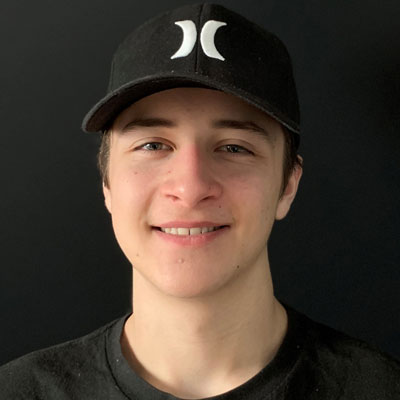
A new heart at 14
Until the day of his heart transplant, Olivier had never known life with a healthy heart
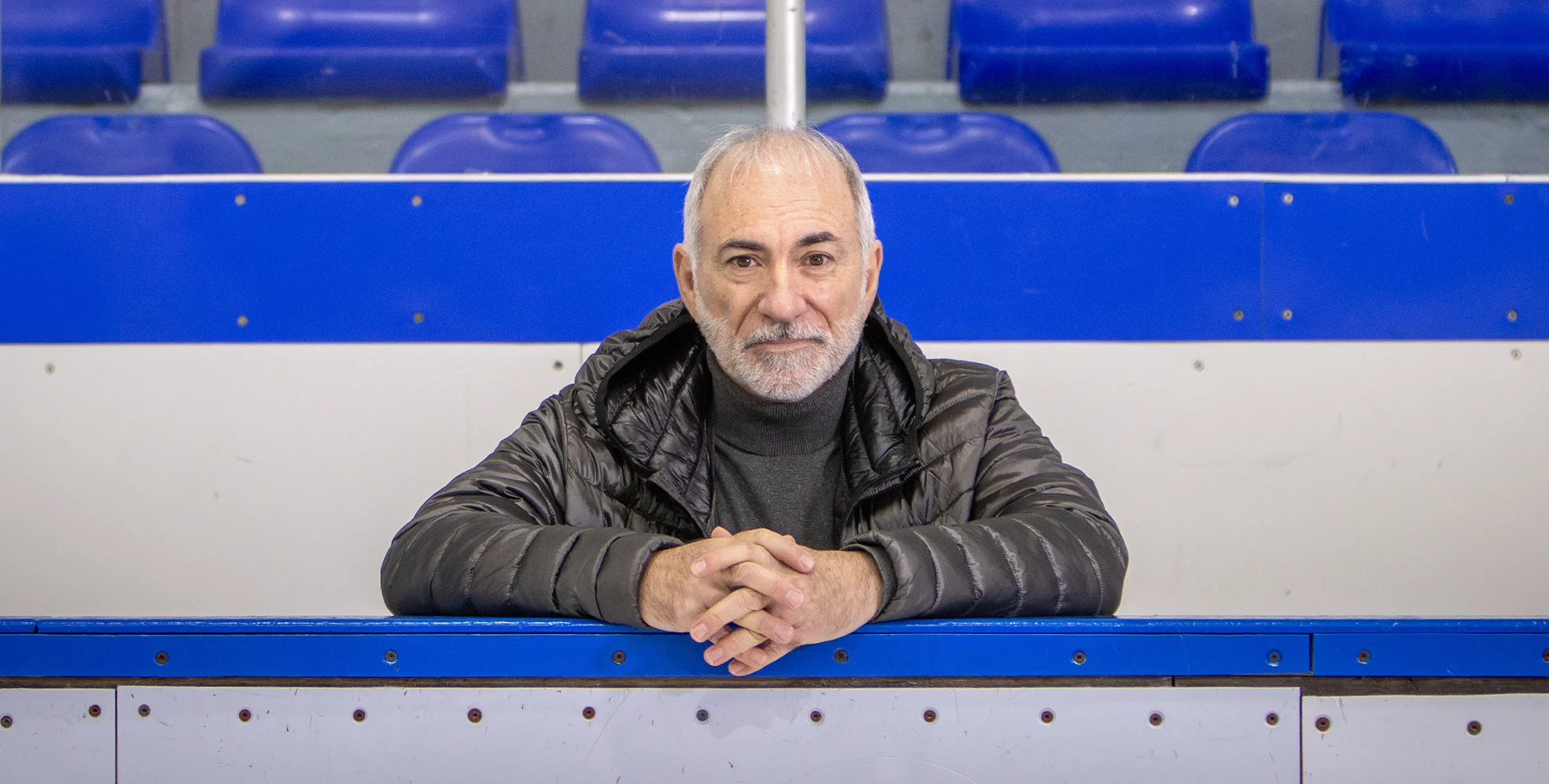
Man on a mission
After a cardiac arrest, actor and singer Robert Marien is using his voice to save others.

Extending heart health for aging
Dr. Susan Howlett targets frailty to help you live healthier, longer. Especially women.
